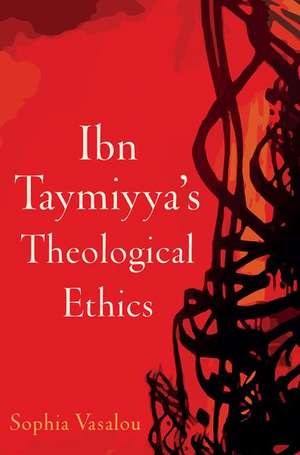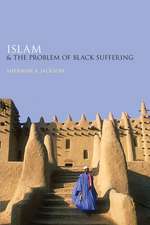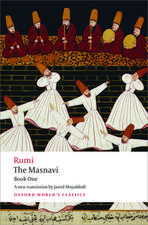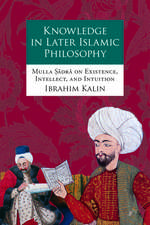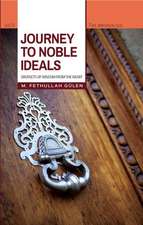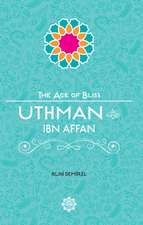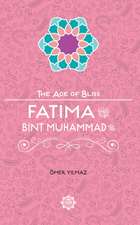Ibn Taymiyya's Theological Ethics
Autor Sophia Vasalouen Limba Engleză Paperback – 19 iul 2018
| Toate formatele și edițiile | Preț | Express |
|---|---|---|
| Paperback (1) | 219.10 lei 31-37 zile | |
| Oxford University Press – 19 iul 2018 | 219.10 lei 31-37 zile | |
| Hardback (1) | 687.73 lei 31-37 zile | +144.94 lei 4-10 zile |
| Oxford University Press – 10 dec 2015 | 687.73 lei 31-37 zile | +144.94 lei 4-10 zile |
Preț: 219.10 lei
Preț vechi: 247.51 lei
-11% Nou
Puncte Express: 329
Preț estimativ în valută:
41.92€ • 43.89$ • 34.69£
41.92€ • 43.89$ • 34.69£
Carte tipărită la comandă
Livrare economică 27 martie-02 aprilie
Preluare comenzi: 021 569.72.76
Specificații
ISBN-13: 9780190912512
ISBN-10: 0190912510
Pagini: 356
Dimensiuni: 231 x 155 x 23 mm
Greutate: 0.57 kg
Editura: Oxford University Press
Colecția OUP USA
Locul publicării:New York, United States
ISBN-10: 0190912510
Pagini: 356
Dimensiuni: 231 x 155 x 23 mm
Greutate: 0.57 kg
Editura: Oxford University Press
Colecția OUP USA
Locul publicării:New York, United States
Recenzii
Ibn Taymiyya is often misunderstood as a simplistic textualist. Sophia Vasalou's masterly book shows that his thought has several surprises in store. Her highly analytical engagement helps us to get at the bottom of his kind of rationalism; a rationalism that has influenced almost all branches of modern and contemporary thought in Islam.
Vasalou's book grapples seriously, even intimately, with the ethical questions that animated Ibn Taymiyya, the larger-than-life intellectual figure who is often - and wrongly, as Vasalou shows - portrayed as a sui generis thinker. Vasalou traces the genealogies of Ibn Taymiyya's ethics in Sunni thought and provides thoughtful analyses of his creative departures from it. This is a major contribution to the study of Islamic ethics that significantly deepens our understanding of its historical genesis.
This is the fullest and most philosophically sophisticated discussion to date of Ibn Taymiyya's utilitarian ethics and vision of human nature (fitra). Taking Ibn Taymiyya's prima facie alignment with the ethical objectivism characteristic of Mu'tazilism as her starting point, Vasalou masterfully shows that he in fact owes far more to medieval Ash'arism than he acknowledges.
Vasalou's book grapples seriously, even intimately, with the ethical questions that animated Ibn Taymiyya, the larger-than-life intellectual figure who is often - and wrongly, as Vasalou shows - portrayed as a sui generis thinker. Vasalou traces the genealogies of Ibn Taymiyya's ethics in Sunni thought and provides thoughtful analyses of his creative departures from it. This is a major contribution to the study of Islamic ethics that significantly deepens our understanding of its historical genesis.
This is the fullest and most philosophically sophisticated discussion to date of Ibn Taymiyya's utilitarian ethics and vision of human nature (fitra). Taking Ibn Taymiyya's prima facie alignment with the ethical objectivism characteristic of Mu'tazilism as her starting point, Vasalou masterfully shows that he in fact owes far more to medieval Ash'arism than he acknowledges.
Notă biografică
Sophia Vasalou is currently a Library of Arabic Literature Fellow at NYU Abu Dhabi and an Honorary Research Associate at Oxford Brookes University, and will be a Senior Lecturer and Birmingham Fellow in Philosophical Theology at the Department of Theology and Religion at the University of Birmingham as of 2016. Her books include Moral Agents and their Deserts, which won the Albert Hourani Book Award in 2009.
